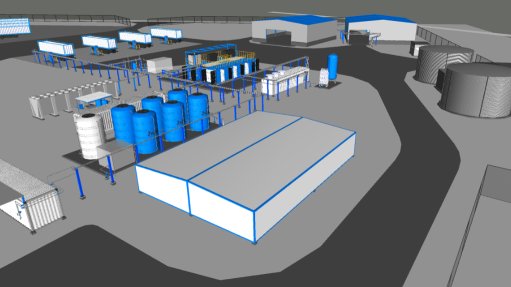Heightened responsibilities for employers amidst employment equity amendments: The introduction of Economic Sectors targets
This article has been supplied and will be available for a limited time only on this website.
By: Dhevarsha Ramjettan, Partner, Kanyiso Kezile, Trainee Attorney & Mufaro Sambaza, Candidate Attorney from Webber Wentzel
The Minister of Employment and Labour (the Minister) has published the Employment Equity Regulations, 2025 (the 2025 Regulations) under the Employment Equity Act 55 of 1998 (EEA), as amended, together with the notice identifying national economic sectors and determining the sectoral numerical targets effective from 15 April 2025. The effect of the 2025 Regulations is that the designated employers are to ensure compliance with more stringent employment equity requirements. The Department of Employment and Labour has reaffirmed its commitment to workplace transformation and signalled a renewed focus on the implementation of employment equity legislation.
The Department of Employment and Labour (DoEL) has intensified its efforts to ensure that workplace transformation and employment equity remain at the forefront of South Africa’s labour landscape. In light of recent amendments to the EEA and the sectoral numerical targets which became effective on 15 April 2025, employers are required to implement more robust measures to remain compliant with the new legislative framework. The DoEL has identified 18 national economic sectors, with specific numerical targets for the identified economic sectors. To review the Determination of Sector Numerical Targets, click here. The employment sector has welcomed the publication of: (i) the General Administrative Regulations, covering Employment Equity (EE) reporting forms, plan templates, enforcement mechanisms, and compliance certificate formats; and (ii) the Regulations on 5-Year Sector Employment Equity Targets, which define specific targets for each sector.
Employment equity planning and reporting
Designated employers are obligated to prepare and implement their Employment Equity Plans (EEPs) and set numerical goals aligned with 5-year sectoral targets by 31 August 2025. The revised reporting cycle for sector targets will then run from 1 September 2025 to 31 August 2030. Employers who become designated employers, after 1 April 2025, must prepare an EEP for the remainder of the period until 31 August 2030. A designated employer must refer to the relevant Codes of Good Practice issued in terms of section 54 of the Act when preparing an EEP. New EEPs must be informed by both qualitative and quantitative analyses, with affirmative action measures designed to achieve the numerical goals and sectoral targets. Recruitment, promotions, and workforce planning should be aligned accordingly.
Justification of non-compliance
The 2025 Regulations outlines the reasonable grounds an employer may rely on to justify non-compliance with sectoral numerical targets. However, the burden of proof rests with the employer. Should non-compliance be challenged, the employer must be able to substantiate its position with clear, documented evidence.
The following are recognised as justifiable reasonable grounds for non-compliance:
- Insufficient recruitment opportunities;
- Insufficient promotion opportunities;
- Insufficient target individuals from designated groups with the relevant formal qualifications, prior learning, relevant experience or capacity to acquire, within a reasonable time, the ability to do the job;
- Impact of a CCMA award or court order;
- Impact of a transfer of business;
- Impact of a mergers or acquisitions; and
- Impact of economic circumstances impacting the business.
Notably, it is unlikely that grounds for non-compliance will be accepted at face value. Companies should expect an interrogation on whether grounds are reasonable to justify non-compliance. Unjustified non-compliance may result in disqualification from state contracts, financial penalties, and potential reputational harm. Employers are therefore encouraged to maintain comprehensive records and strengthen administrative processes to support any defence of non-compliance.
Compliance certificate: A gateway to state contracts
Amendments to section 53 of the EEA introduce enhanced compliance obligations for employers doing business with the state. Designated employers must obtain a certificate of compliance from the Minister of Employment and Labour to qualify for state contracts. The Minister may issue such a certificate only if satisfied that the employer has:
- complied with applicable sectoral targets;
- provided a reasonable justification for any target not met;
- submitted the required report in terms of section 21;
- not had a finding against it by the CCMA or a court in the past 12 months that the employer breached the prohibition on for unfair discrimination under Chapter 2; and
- not had a CCMA award issued against it in the past 12 months for failing to pay the minimum wage under the National Minimum Wage Act of 2018.
Administrative oversight and record-keeping
Given the stricter compliance framework, employers must enhance their administrative processes and maintain detailed records of all documentation, analyses, and implementation efforts. This is especially critical where an employer may rely on justifiable grounds for non-compliance.
Upskilling forums and line management
Effective employment equity implementation relies on well-informed and empowered decision-makers. Employers must prioritise the training and upskilling of line managers and employment equity forum representatives, particularly those involved in recruitment and promotion processes.
It is equally important to establish and support representative forums with adequately trained members. These forums play a key role in championing diversity, inclusion, and meaningful transformation within the workplace.
Expanded definition of disability
The definition of “people with disabilities” has been expanded to include individuals with long-term or recurring physical, mental, intellectual, or sensory impairments that may substantially limit their prospects of entry or advancement in the workplace. In line with this, the proposed employment equity target for persons with disabilities has been increased to 3%.
Employers may need to update their EEA1 declaration forms and internal processes to ensure accurate self-identification and representation in their EEPs.
Next steps for employers
Given the scope and implications of the recent amendments, employers are advised to:
Begin reviewing and updating their EEPs.
Enhance record-keeping and administrative oversight to prepare for audits and compliance reviews.
Proactively upskill line managers and forum representatives.
Align workforce planning strategies with sectoral targets.
Ensure systems are in place to meet the compliance certificate requirements.
The amendments send a clear message: employment equity is not a tick-box exercise, but a fundamental element of doing business in South Africa. Employers must act now to future-proof their compliance and support meaningful workplace transformation.
Comments
Press Office
Announcements
What's On
Subscribe to improve your user experience...
Option 1 (equivalent of R125 a month):
Receive a weekly copy of Creamer Media's Engineering News & Mining Weekly magazine
(print copy for those in South Africa and e-magazine for those outside of South Africa)
Receive daily email newsletters
Access to full search results
Access archive of magazine back copies
Access to Projects in Progress
Access to ONE Research Report of your choice in PDF format
Option 2 (equivalent of R375 a month):
All benefits from Option 1
PLUS
Access to Creamer Media's Research Channel Africa for ALL Research Reports, in PDF format, on various industrial and mining sectors
including Electricity; Water; Energy Transition; Hydrogen; Roads, Rail and Ports; Coal; Gold; Platinum; Battery Metals; etc.
Already a subscriber?
Forgotten your password?
Receive weekly copy of Creamer Media's Engineering News & Mining Weekly magazine (print copy for those in South Africa and e-magazine for those outside of South Africa)
➕
Recieve daily email newsletters
➕
Access to full search results
➕
Access archive of magazine back copies
➕
Access to Projects in Progress
➕
Access to ONE Research Report of your choice in PDF format
RESEARCH CHANNEL AFRICA
R4500 (equivalent of R375 a month)
SUBSCRIBEAll benefits from Option 1
➕
Access to Creamer Media's Research Channel Africa for ALL Research Reports on various industrial and mining sectors, in PDF format, including on:
Electricity
➕
Water
➕
Energy Transition
➕
Hydrogen
➕
Roads, Rail and Ports
➕
Coal
➕
Gold
➕
Platinum
➕
Battery Metals
➕
etc.
Receive all benefits from Option 1 or Option 2 delivered to numerous people at your company
➕
Multiple User names and Passwords for simultaneous log-ins
➕
Intranet integration access to all in your organisation
























